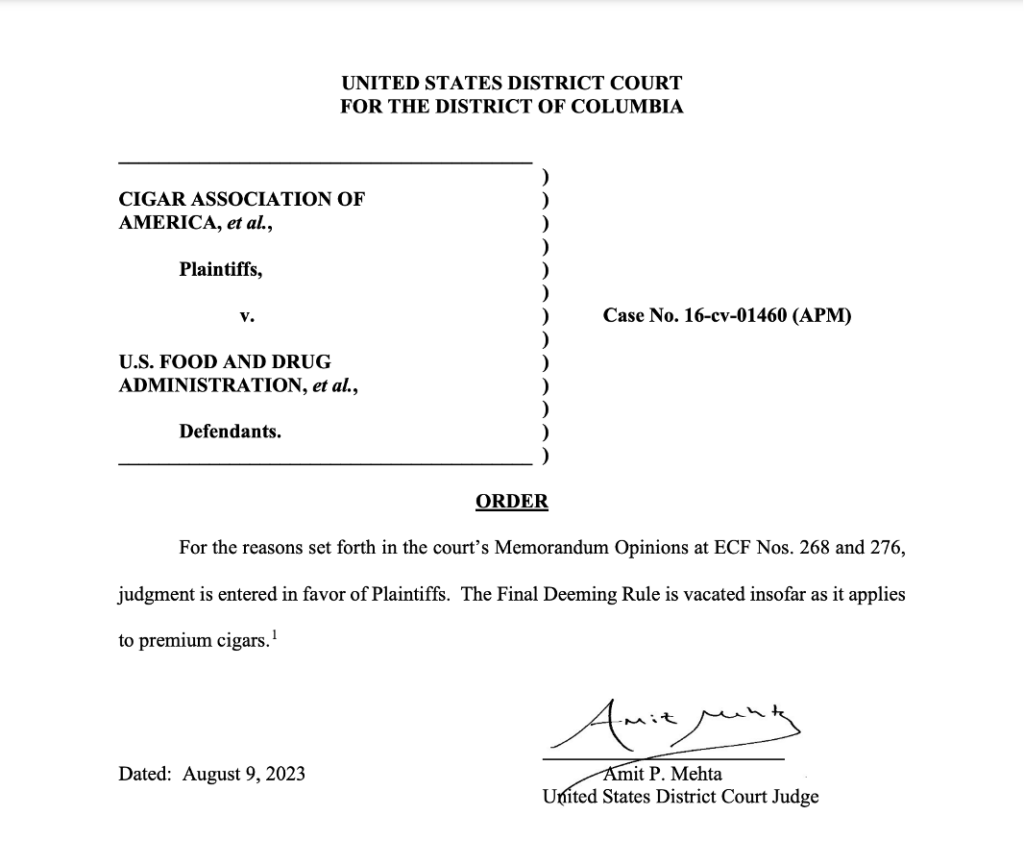“The FDA’s Final Deeming Rule is vacated insofar as it applies to premium cigars.” But what does that mean?

The given court ruling has implications related to a legal case involving Plaintiffs and the Final Deeming Rule, specifically in the context of premium cigars. Here are some potential implications of this court ruling:
Vacature of the Final Deeming Rule: The regulatory requirements and provisions outlined in the Final Deeming Rule–and any proposed regulations since–will no longer be applicable to premium cigars.
Appeals: The FDA has 60 days to appeal the decision. The vacature would likely stand during this process, preventing FDA from making new regulations over premium cigars. Under certain circumstances, an appellate judge could stay the vacature, allowing FDA to continue with its rulemaking and regulation of the industry, while the court considers the appeal. But FDA would have to make a compelling case that irreparable damage would occur during that period.
User Fees: Although the court did not order the agency to refund user fees, it stated that FDA had no right to collect them since they had no authority to put premium cigars under their authority.
T21: This ruling by the court returns the responsibility of age restrictions for the sale of premium cigars onto the states. All but 12 states and 4 territories already restrict the sale of premium cigars to those at or over the age of 21. The other 12 states and 4 territories do restrict the purchase of premium cigars at or above 18 years of age.
Federal Regulation of Premium Cigars: While the vacature removes Premium Cigars from FDA’s regulatory authority under the Tobacco Control Act, it does not leave the industry “unregulated.” The Department of Agriculture, the Alcohol and Tobacco Tax and Trade Bureau, Customs, and other federal agencies will continue to make and enforce regulations specific to their jurisdiction. State and local laws and regulations will continue to apply as well.
